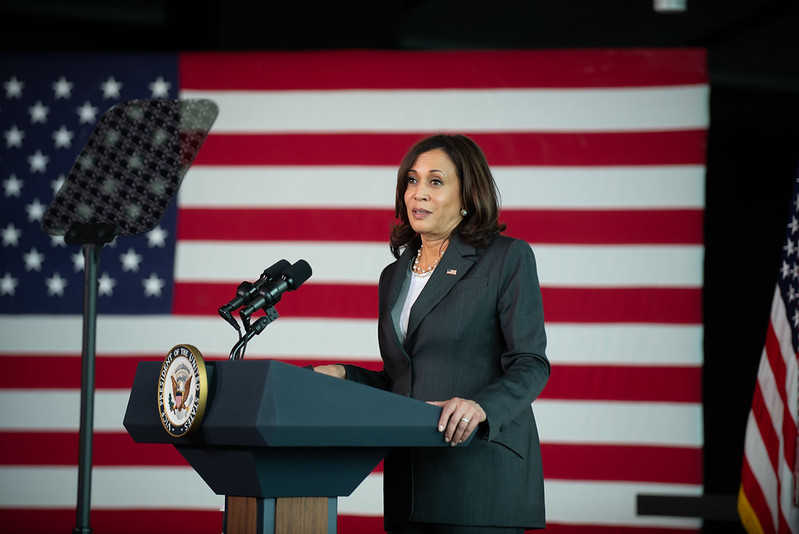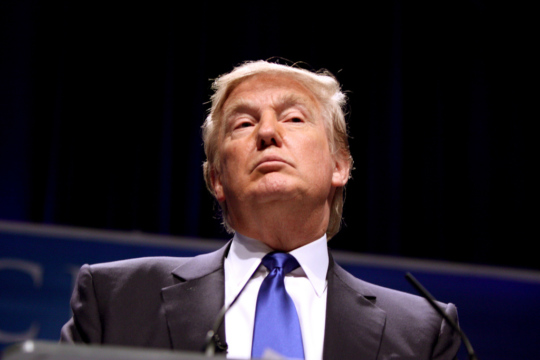Obama’s New Deportations Policy & the Future of Immigration
President Obama has overseen some of the strictest enforcement policies of the past several decades.
On June 6, Vice President Kamala Harris, in her first foreign visit, will go to Mexico and Guatemala, where she will be meeting with presidents Lopez Obrador and Giamettei, as well as with a wide range of groups and civil society organizations. In March, President Biden asked her to lead efforts to stem migration from Central America and address its root causes.
The Vice President is expected to focus on a wide range of challenges, some more short-term like more effective enforcement and others deeper, and longer-term, including corruption, violence, organized crime, lack of economic development, investment, job opportunities, and climate change. In recent years, the situation in Central America has deteriorated, aggravated by the pandemic.
For interview requests and press inquiries, contact press@thedialogue.org
En esta entrevista con Reforma, Michael Shifter opinó sobre la crisis migratoria en la frontera de México y Estados Unidos, la relación bilateral entre ambos países y la primera reunión virtual entre Andrés Manuel López Obrador y Joe Biden.
Given the huge demands on Washington – domestic and international – and today’s ravaged, fragmented, and leaderless region, this is probably not the right time for bold, ambitious initiatives. But the Biden administration should move quickly to renew partnerships with select countries, emphasizing recovery from Covid-19 and restoring economic and political stability.
Given its commitment to reviving multilateralism and bringing together diverse stakeholders, the Biden administration is well-positioned to use these instruments to implement its more holistic regional agenda. After decades of privileging police and military assistance and waiting for government uptake of institutional strengthening efforts, it is time to look beyond Central American states and reinvest in civil society-based anti-corruption coalitions that can be the engines of political and economic change.
The Inter-American Dialogue, Creative Associates International, and the International Organization on Migration hosted the online event Addressing the Root Causes of Migration from Central America to discuss trends in Central American migration alongside practical solutions for managing these flows and addressing the factors pressuring people to leave their homes.
Making climate change a central theme of a renewed US focus on the root causes of migration from the Northern Triangle presents an opportunity for the Biden administration to address its border dilemma while simultaneously advancing its climate-related foreign policy goals.
The energy markets of the United States and Mexico are deeply integrated, to the benefit of both countries and their economies. The new US administration has a clear interest in preserving and expanding this fruitful relationship while advancing its ambitious clean energy and climate goals, both at home and abroad.
On February 17, 2021, the Inter-American Dialogue hosted the online event “Biden’s Central America Plan – Perspectives from the Region” in partnership with Creative Associates International. Taking into account the Biden administration’s plan for Central America, speakers addressed the region’s doubts, needs and aspirations with respect to US partnerships toward short-term and long-term development in the region.
![]() Mexicans on June 6 will elect the entire Federal Chamber of Deputies, as well as 15 governors and members of 30 state legislatures, in the nation’s first major vote since President Andrés Manuel López Obrador took office in December 2018. The ruling Morena party, which currently holds a majority in both chambers of Congress, is leading in the polls with 56 percent of respondents’ support, Bloomberg News reported. What’s at stake in Mexico’s midterm election, and which issues are most important to voters? Will opposition parties’ coalition garner enough support to strip Morena of its near-supermajority in Congress? To what extent, and in what ways, might the results influence López Obrador’s political agenda going forward?
Mexicans on June 6 will elect the entire Federal Chamber of Deputies, as well as 15 governors and members of 30 state legislatures, in the nation’s first major vote since President Andrés Manuel López Obrador took office in December 2018. The ruling Morena party, which currently holds a majority in both chambers of Congress, is leading in the polls with 56 percent of respondents’ support, Bloomberg News reported. What’s at stake in Mexico’s midterm election, and which issues are most important to voters? Will opposition parties’ coalition garner enough support to strip Morena of its near-supermajority in Congress? To what extent, and in what ways, might the results influence López Obrador’s political agenda going forward?
Featured Expert Commentary:
"El reto de Harris es conducir la situación actual con México simultáneamente con firmeza y delicadeza, tomando en cuenta la continua popularidad de AMLO y la aparente determinación de éste de consolidar el poder aunque eso implique recurrir al nacionalismo y a desafiar a EEUU."
"El reto de Harris es conducir la situación actual con México simultáneamente con firmeza y delicadeza, tomando en cuenta la continua popularidad de AMLO y la aparente determinación de éste de consolidar el poder aunque eso implique recurrir al nacionalismo y a desafiar a EEUU."
"AMLO se sintió cómodo con las relaciones con EEUU bajo (el expresidente Donald) Trump, quien ignoró el historial del gobierno mexicano en cuanto a derechos humanos, corrupción y seguridad. La Administración Biden ha generado malestar en el gobierno de AMLO por presionar por más resultados en la lucha anti-corrupción y lo más probable es que avance con cautela porque a Washington le conviene más tener la cooperación de México en materia migratoria."
"[Kamala Harris] understands the importance of partnerships and alliances when it comes to our national security."
"While Harris doesn’t have the experience of Biden on foreign policy, she is no foreign-policy lightweight. Harris was a quick study with strong instincts on foreign policy who quickly got up to speed on the issues during the primaries. She’s smart, and she understands the complex national security challenges that we’re facing."
President Obama has overseen some of the strictest enforcement policies of the past several decades.
Will President-elect Trump shatter America’s most important bilateral relationship?
Una semana después de la sorpresiva victoria electoral de Donald Trump, en la capital norteamericana se respira un ambiente de “incertidumbre”, mientras en diversas ciudades se han llevado a cabo inéditas protestas contra el presidente electo.
 Maryland National Guard / CC BY-ND 2.0
Maryland National Guard / CC BY-ND 2.0

